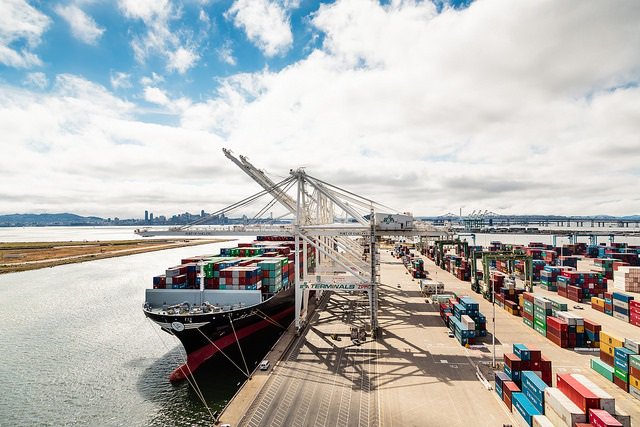A major global marine terminal operator has OKd a new Port of Oakland lease that runs through 2027. The agreement includes options that could keep SSA Terminals (Oakland) here to 2042. The Port has characterized the deal as validation for the city’s maritime future.

“SSA is an influential player on the waterfront worldwide, and a significant presence in Oakland,” said Port Maritime Director John Driscoll. “This lease commitment demonstrates its belief in the Port’s long-term prospects.”
Oakland’s Board of Port Commissioners approved the new lease last night. Key elements of the deal include:
- a 19-acre expansion at SSA’s Oakland International Container Terminal (OICT);
- purchase of three new ship-to-shore cranes by the terminal operator for cargo handling; and
- options that would extend the new lease an additional 15 years if certain conditions were met.
SSA is the largest marine terminal operator in Oakland. OICT, the nation’s second-busiest marine terminal, handles about 60 percent of the Port’s total containerized cargo volume. SSA also operates Oakland’s Matson Terminal, which is included in the new lease.
“We see steady cargo growth for Oakland into the next decade,” said Ed DeNike, President of SSA Containers. “This new lease helps us plan for the future.”
Three operating companies, including SSA, lease terminal facilities from the Port of Oakland. Terminals are the focal point of seaport operations. They’re where ships, trucks and trains converge to move containerized cargo. SSA has operations at 250 locations on five continents.
SSA earned recognition over the last three years for leading an operational transformation in Oakland. It was the first operator to open gates at night for cargo pick-up or delivery. It’s currently raising the height of four cranes to better handle a new class of megaships in Oakland.
The new lease binds SSA to a list of environmental commitments in Oakland. Among them: compliance with state and federal laws and the Port’s Maritime Air Quality Improvement Program. Under the agreement, the terminal operator will apply for government grants to reduce emissions from cargo handling equipment.
Source: Port of Oakland